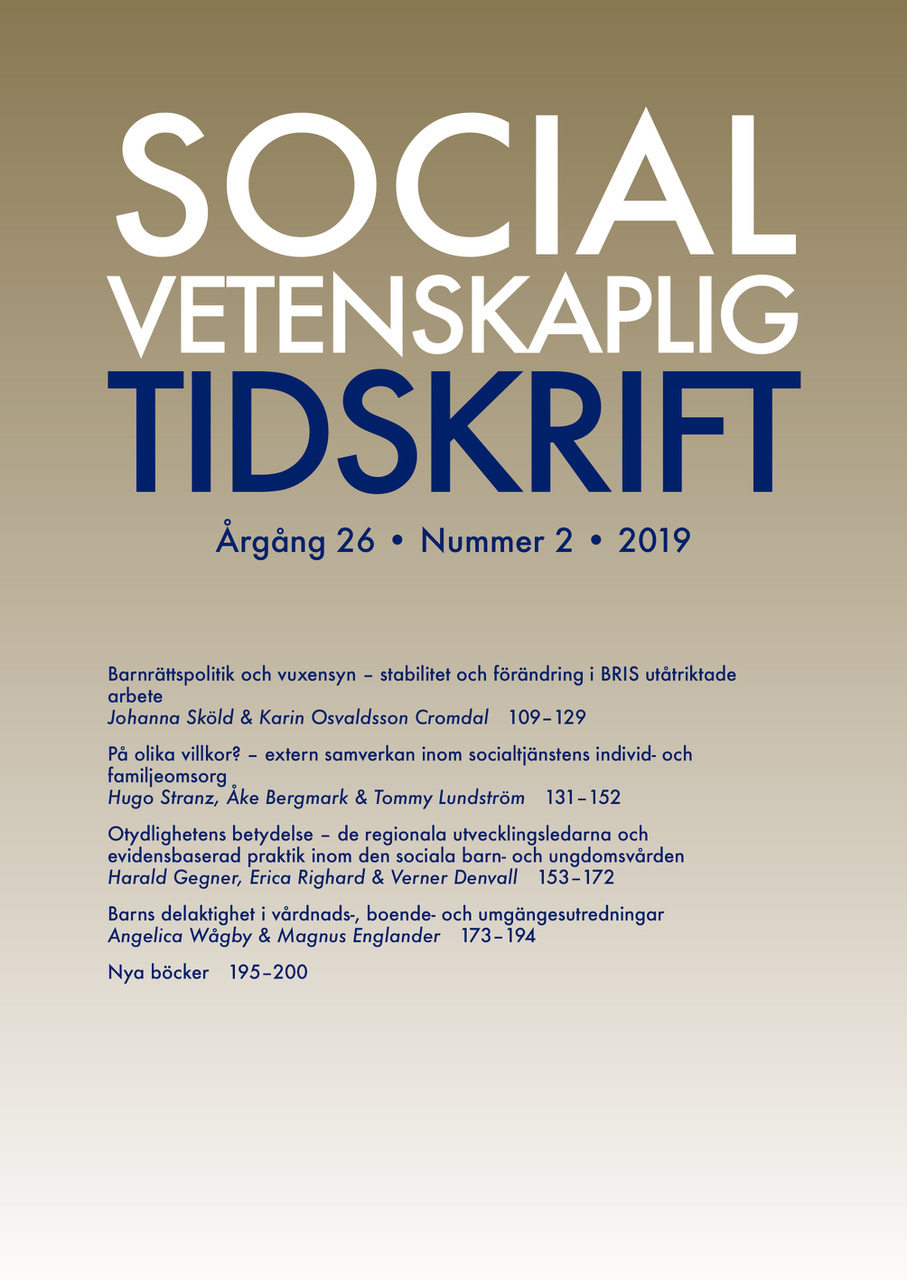Barnrättspolitik och vuxensyn
– stabilitet och förändring i BRIS utåtriktade arbete
DOI:
https://doi.org/10.3384/SVT.2019.26.2.3081Abstract
Children’s rights policies and the adult perspective – stability and change in the outreach work of BRIS?
This article sets out to explore how a Swedish children’s rights organization has accounted for adults’ capability or incompetence to address children’s interests and how such notions have changed over time and have been negotiated between actors within the organization. Since its establishment in 1971, The Children’s Rights in Society (BRIS – Barnens rätt i samhället) has been an organization of adults working for children. Children’s rights organizations often stress that their work is guided by a child perspective, although much children’s rights advocacy is performed by adults. What is the bearing of this discrepancy when it comes to the formulation of child rights policies? Is it possible to distinguish an adult perspective operating in the shadow of the embraced child perspective? The results demonstrate that in the 1970s, the organization identified parents as the children’s main betrayers, but that the importance of child experts and child welfare professionals as advocates for children’s voices and opinions was gradually emphasized more. During the second period of study (2007–16) the need for increased resources and competences of child welfare professionals has been accentuated as welfare institutions such as school, social services and child and adolescent psychiatry are simultaneously seen as the cause of and key to children’s problems while the generational conflict between children and parents has been downplayed.
Downloads
Published
How to Cite
Issue
Section
License
Allt material i Socialvetenskaplig tidskrift publiceras sedan 2022 (Vol 28 Nr 2) med omedelbar öppen tillgång (open access), under Creative Commons-licensen CC BY 4.0. Upphovsrätten till innehållet tillhör respektive författare.
Allt innehåll i tidskriften är fritt tillgängligt utan kostnad och får fritt läsas, laddas ned, kopieras, delas, skrivas ut och länkas. När innehållet används måste författare, källa och licens anges. Författaren kan fritt göra sin publicerade text tillgänglig på institutionella och internetbaserade arkiv, exempelvis sitt lärosätes digitala arkiv eller andra tjänster för detta.
Inga publiceringsavgifter tas ut vid publicering i Socialvetenskaplig tidskrift.


